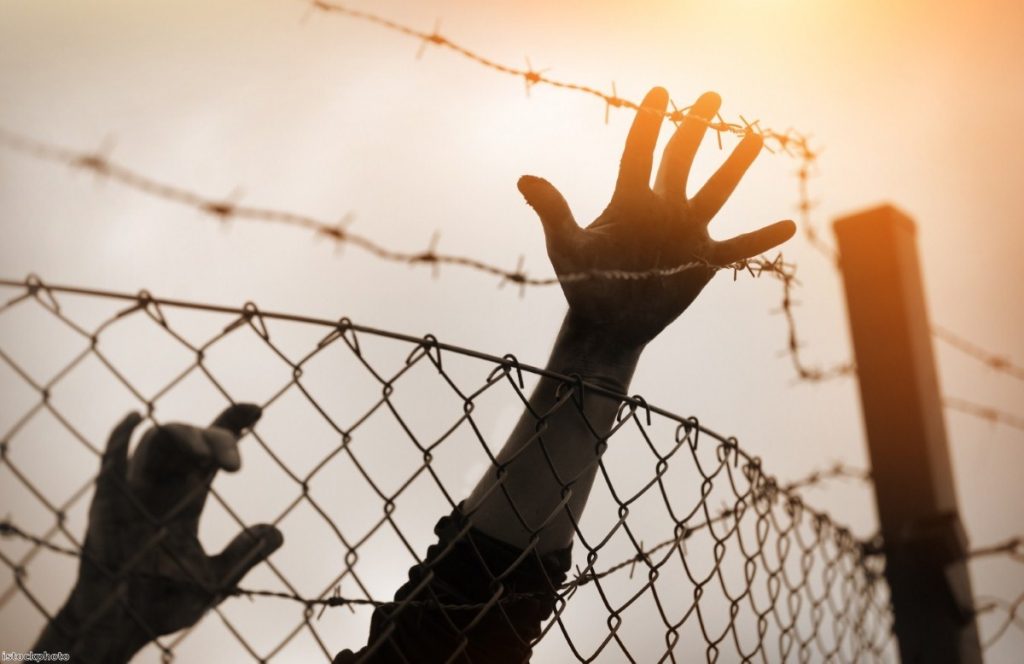No-one could watch the celebrations in Manbij without being moved. Men, women and children can be seen dancing in the street as Isis retreat from the town. Men cut their beards, women burn their niqabs, people smoke in the street, soldiers dance, old women weep with joy.
But it's not just about what liberating Manbij means for the people there. It is also a significant strategic victory. Isis are falling apart in their last stretch of territory before the Turkish border. These roads had become pivotal to the group's ability to move people, goods and weapons in and out of Syria. The routes to Aleppo, Syria’s second city, and Raqqa, Isis'capital, pass through the town.
Back when Britain debated participation in Syria, critics back home would stress that it wouldn't happen in their name. Well this is happening in their name and they should be proud.
On July 28th, RAF aircraft provided close air support to Syrian Democratic Forces, an alliance of Kurdish, Arab, Assyrian, Armenian, Turkmen and Circassian militias, conducting four attacks with Hellfire missiles against Isis fighters and assisting in another four attacks by coalition jets.


On August 2nd, two Typhoon fighters defended ground forces as they fought to secure the city. They struck at a number of buildings on the south-western edge of the town, which were being used for a defensive position by Isis.
On August 10th, a Reaper drone intervened in close combat just north of the city, using hellfire missiles to clear two groups of Isis fighters in a fire-fight with coalition allies on the ground.
These victories weren't dependent on British airpower. It's a result of US-led coalition air support for Kurdish forces on the ground. But we shouldn't underestimate the effect of British participation. When parliament voted against involvement in Syria in 2013, it encapsulated broader western concerns about military engagement post-Iraq and discouraged others, not least the US, from stepping forward. Now its presence is part what lends credibility to global efforts to liberate the people here from tyranny.
Britain might not take the military lead on these operations, but it helps form a political consensus on whether it is right to use force.
The concerns that have prevented British involvement in the past are, of course, completely valid. Iraq was a moral and strategic disaster which trashed any remaining trust we might have had in the judgement of our leaders and the health of the US-UK relationship. Plus, Syria is undoubtedly a mess. We want to side with neither the butcher Assad, nor the barbarians of Isis.
But that is not an excuse for paralysis. There are third actors to support, such as the courageous Kurdish Peshmerga, or the armed brigade of former Yazidi sex slaves fighting alongside them. These are people fighting, as Hilary Benn correctly put it, against fascism. They liberate themselves, but also make the likelihood of future conflict more distant, by hindering Isis' ability to plan attacks in Syria, Turkey and Europe.
Those who instinctively oppose British military involvement in other countries – especially the Middle East – are right to be suspicious. Suspicion is a useful barrier to moral catastrophe and the British government has earned a great deal of suspicion, not least because of its witless loyalty to every US whim, not all of which are as commendable as here.
But the scenes in Manbij – glorious scenes which show what it looks like when you help free people from barbarism and totalitarianism – should remind us that British air power can also make the world a better place. It can protect people from thugs. We should remember these moments, as we remember moments like Iraq.
Ian Dunt is the editor of Politics.co.uk
The opinions in politics.co.uk's Comment and Analysis section are those of the author and are no reflection of the views of the website or its owners.












